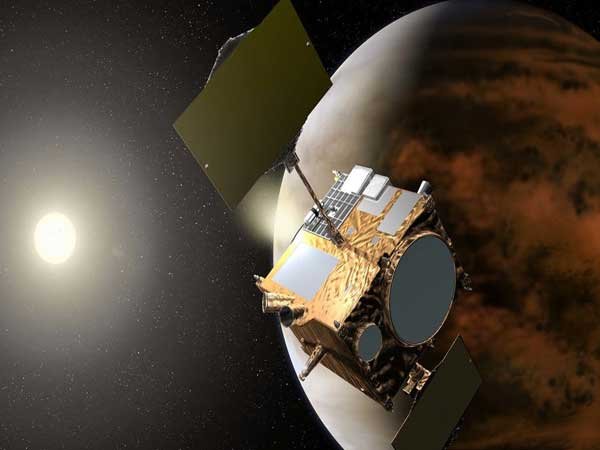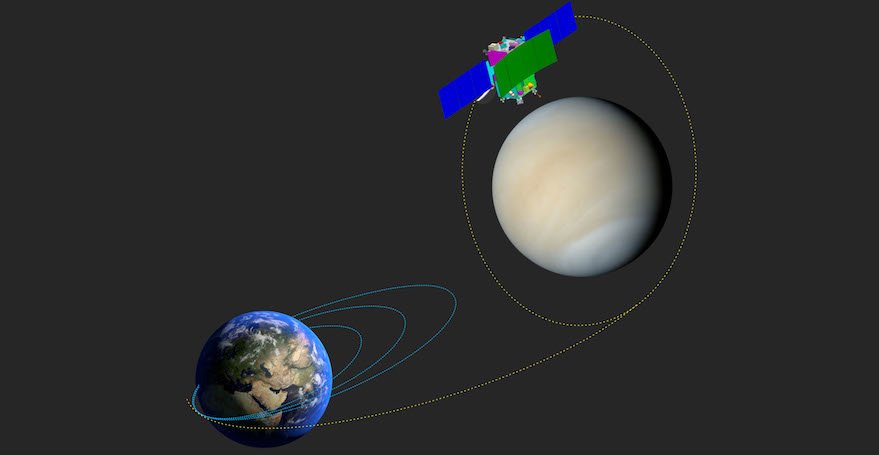Shukrayaan: Venus after Mars
Successful Mangalyaan of India has boosted the hopes of scientists and they are planning for the future. India is planning to enter Venus orbit with its new orbiter launch in 2024, which is a year delayed as per the reports of media.
The mission is named the Shukrayaan orbiter which will be studying Venus for 4 years and it is the first mission to Venus by the India Space Research Organization (ISRO).
According to the information on the site of ISRO, they have been trying since at least 2018 by soliciting ideas for instruments for a Venus-based mission. SpaceNews reported that ISRO’s T. Maria Antonita at the planetary science committee presented more information about Shukrayaan during a discussion about NASA‘s new 10-year plan for planetary science.

Delayed Launch
A mid-2023 launch was aimed by ISRO when it released its call for instruments in 2018 but as told by Antonita to the National Academies’ decadal survey planning committee last week that due to the pandemic-related delays have postponed Shukrayaan’s target launch date to a year ahead in December 2024. Antonita also added that a backup launch opportunity is accessible when Venus and Earth are next aligned in mid-2026 in such a way to minimize spacecraft fuel use during the planetary transit.
The committee was told by Antonita that India’s GSLV Mk II rocket is set to launch Shukrayaan but it might be sent on the GSLV Mk III rocket, being a more powerful one. This decision will be made in the next three to six months by ISRO.
Instruments for Study
For the purpose of probing the Venusian environment, the Shukrayaan will carry several instruments. To examine the Venusian surface, the flagship instrument will be used as a synthetic aperture radar as Venus which is shrouded by thick clouds that make it unfeasible to glimpse the surface in visible light. Space News reported that an earlier version of the flagship instrument flew on the Indian Chandrayaan-2 spacecraft now orbiting the moon.
The other set of instruments is a Swedish-Indian collaboration known by the name of Venusian Neutrals Analyzer will examine how the interaction between charged particles from the sun and the atmosphere of Venus happens. A similar instrument which was an earlier generation instrument of same was used in the launch of the Indian Chandrayaan-1 moon mission of 2008-09 which studied how the sun’s particles affect a world with a far more insubstantial atmosphere.

Antonita noted that Shukrayaan will also carry an instrument to Venus to study the planet’s atmosphere in infrared, ultraviolet, and submillimeter wavelengths. Scientists announced in early 2020 that there is a possible detection of phosphine in Venus atmosphere, which is a life-friendly element but many scientists remain skeptical about the findings of the phosphine in the atmosphere of Venus.
Collaborations on Shukrayaan
Recently there was news of the French Space Agency (CNES) making an announcement in September of flying an instrument on the Shukrayaan. Russian Federal Space Agency (Roscosmos) has collaborated with India for flying the Venus Infrared Atmospheric Gases Linker (VIRAL). India is also flying an instrument from Germany among various shortlisted instruments as per reports of Antonita.
Though there have been very few missions to Venus in recent years, although dozens of missions have flown to the planet since the 1960s. Planet has been orbited between 2006 and 2014 by the European Space Agency’s Venus Express, Japan’s Akatsuki spacecraft entered orbit in 2015 following the unsuccessful attempt. NASA’s Parker Solar Probe for solar observation and Europe’s BepiColombo en route to Mercury are among the several spacecraft performing flybys of Venus in near future.

1 Comment
Pingback: Science Claims in 2020 if proven, can be a Breakthrough - Craffic